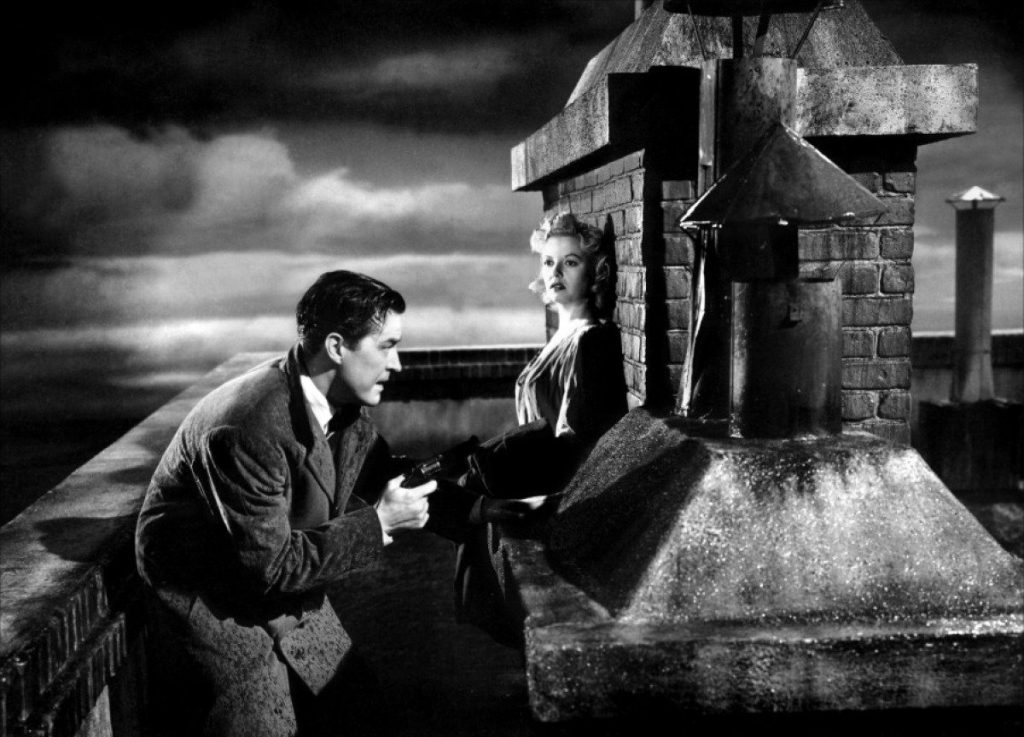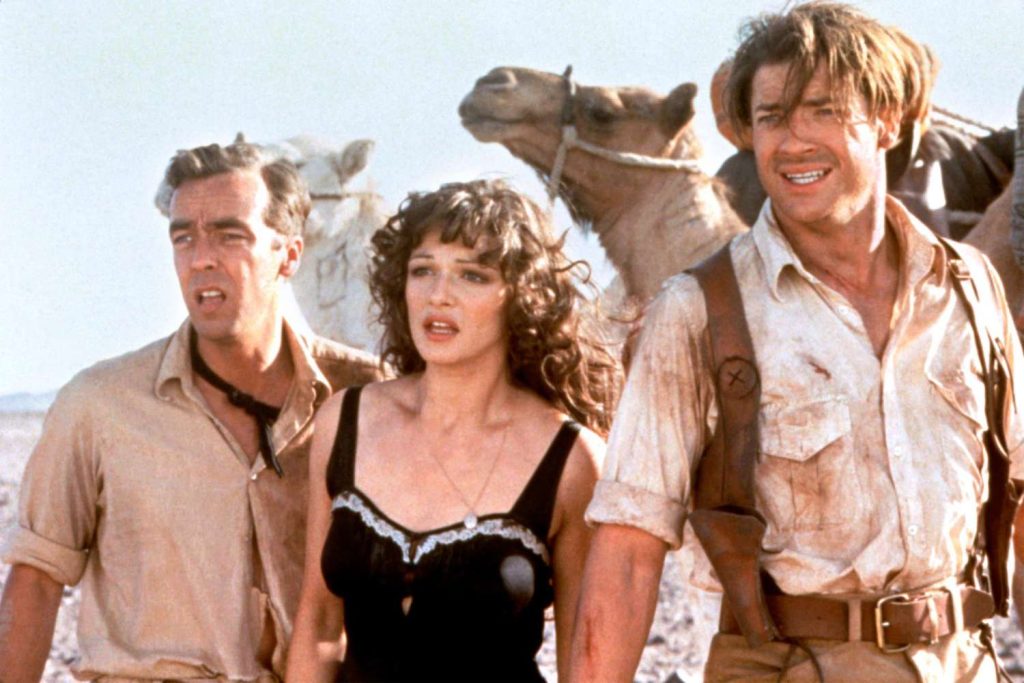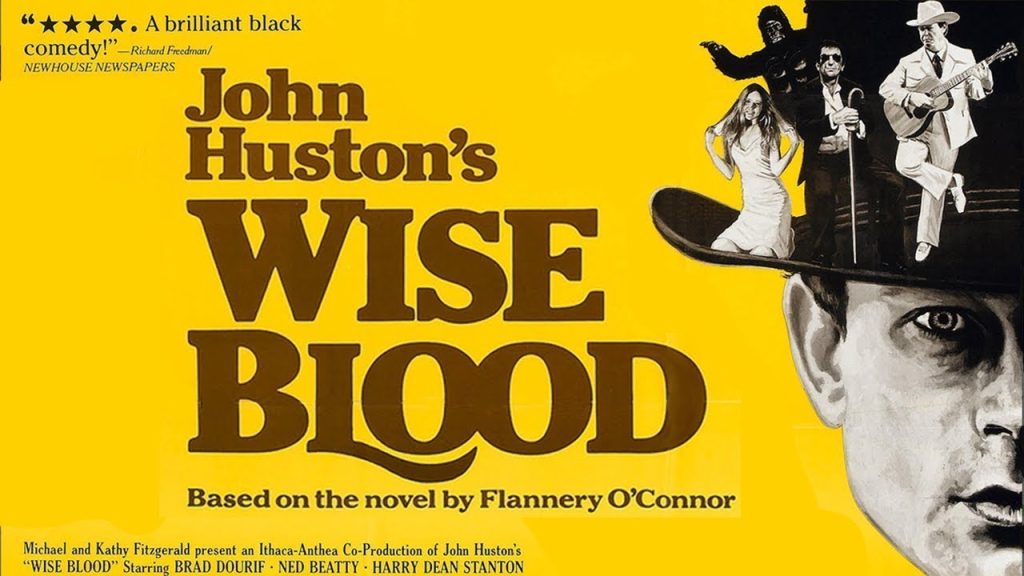A warm, spring breeze of a movie, They All Laughed was writer-director Peter Bogdanovich’s personal favorite of all his films. Most days it’s mine, too, though I should specify that one probably needs to be in the right mood to surrender its specific strain of romantic whimsy. The 1981 movie is a gossamer confection flush with the lightheaded feeling of first falling in love. It’s a silly story about private detectives hired by jealous husbands to spy on wives they wind up falling in love with — an occupational hazard when you’re following beautiful women around a fairytale New York City where it’s magic hour all day and there’s always music in the air. Under too heavy a hand the movie might well have been insufferable, but Bogdanovich keeps things light and infectiously airy. They All Laughed feels casually enchanted, with a melancholy undertow that can’t help but be intensified by the true-life tragedy that followed.
Ben Gazzara, John Ritter and first-time actor Blaine Novak (who also produced and co-wrote the picture with Bogdanovich) play a trio of private dicks traipsing around Manhattan not-so-quietly keeping tabs on pretty ladies. Gazzara’s assigned to Audrey Hepburn, in her final major movie role as the bored wife of an international financier or magnate of something-or-other. Specifics are not the screenplay’s strong suit, as Bogdanovich and Novak understand we’d rather just watch these dazzling stars flirt and light each other’s faces up with the kind of repartee you only hear in the movies.
Gazzara is at his most relaxed and regal, strolling these streets like he owns them. You can see a frisky twinkle in Hepburn’s eyes behind those oversized sunglasses, playing every scene like it’s against her better judgment but she’s having too much fun to stop. The two had an offscreen affair a couple of years before on the set of the 1979 movie Bloodline the ended badly, and their scenes together crackle with the possibility of second chances, tempered by the rueful self-knowledge of older lovers who have been around the block enough times to know that nothing this good is meant to last.
Elsewhere in the city, Ritter and Novak are following a gorgeous young blonde (Playboy Playmate of the Year Dorothy Stratten making her legit film debut) who’s mixed up with a hunky heir (Hepburn’s son Sean Ferrer) amid a bustling ensemble of lovers, erstwhile and otherwise. Everyone in this movie seems to know each other, and chances are they’ve slept together — or at the very least, kissed an awful lot. The cast is full of the filmmaker’s friends and family, with even his two young daughters Sashy and Antonia conscripted to play Gazzara’s kids. Everyone’s friendly and deep into each other’s business, with a running joke being that our detectives are usually the last to figure everything out.
The tone is set in the opening moments by model Patti Hansen’s seen-it-all cabbie in a 1930s newsboy hat (where in New York do you find a cab driver that looks like Patti Hansen?) coming onto Gazzara with some smoky, Hawskian banter. Bogdanovich’s beloved screwball influences come through strongest in what should have been a star-making performance by Colleen Camp as a high-strung country singer with a thing for private eyes. She bats around Ritter like he’s a plaything, the Three’s Company star throwing himself into elaborate pratfalls while outfitted in glasses to match his director’s trademark specs. In some scenes Ritter’s even wearing Bogdanovich’s own clothes, transparently standing in for the director in a semi-autobiographical riff on how he fell in love with Dorothy Stratten.

In 1981, movies set in the Big Apple tended to look like the blighted hellscapes of Nighthawks or Escape From New York. But They All Laughed takes place in a luxurious Manhattan, key scenes showcasing the splendor of the Algonquin and Plaza hotels. It’s a sophisticated world of horse-drawn carriages, heliports and high-end retail, with river views photographed in lush, sumptuous colors by Dutch master Robby Muller. Bogdanovich orchestrates the chaos in long, fluidly choreographed takes with the actors making their way down Fifth Avenue surrounded by swarms of pedestrians who didn’t know they were in a movie. (You can spot a couple of them staring at the stars. But as the director noted, that’s what strangers in New York City do sometimes. They glare at you.)
The constant country music on the soundtrack might be geographically incongruous for the milieu, yet it feels emotionally apt for these characters who all wear their hearts on their sleeves. This is such a delicate, effervescent little movie — superfan Quentin Tarantino describes it as feeling like “fizzy Coca-Cola can bubbles” — I can’t imagine what it must have been like to try and watch something as silly as They All Laughed in the immediate wake of Stratten’s horrific murder by her estranged husband, one month after shooting wrapped.
Apparently neither could 20th Century Fox, and the studio quietly set about dumping the film. Devastated by Stratten’s killing, Bogdanovich belligerently bought the movie back and tried to distribute it on his own, mortgaging his house and bankrupting himself in the process. Without studio resources, They All Laughed went missing for many years, kept alive by the memories of its passionate fans. The sad saga is chronicled in Bill Teck’s terrific 2014 documentary One Day Since Yesterday: Peter Bogdanovich & the Lost American Film. In it, Tarantino talks about how it felt for him like Stratten was magically resurrected for the two hours he spent watching the movie. (You can draw a line between how Bogdanovich’s camera follows Stratten around the city and Tarantino’s reverent depiction of Sharon Tate running errands in Once Upon a Time… in Hollywood.)
Nearly 45 years on, with the more grisly details of Stratten’s murder faded in the rearview, it’s easier to appreciate They All Laughed. So many in the cast are also now gone — Gazzara, Hepburn, Ritter and Bogdanovich as well — that the sense of melancholy I mentioned looms even larger over the film’s ending. It’s a long goodbye between Hepburn and Gazzara in which their faces have to say what the characters cannot. Set against the vast Manhattan skyline, the scene sums up how precious our brief time is together, however fleeting it may be. Wistful and full of gratitude, it’s one of the fondest farewells I’ve ever seen in a movie.
“They All Laughed” is streaming on Max.



